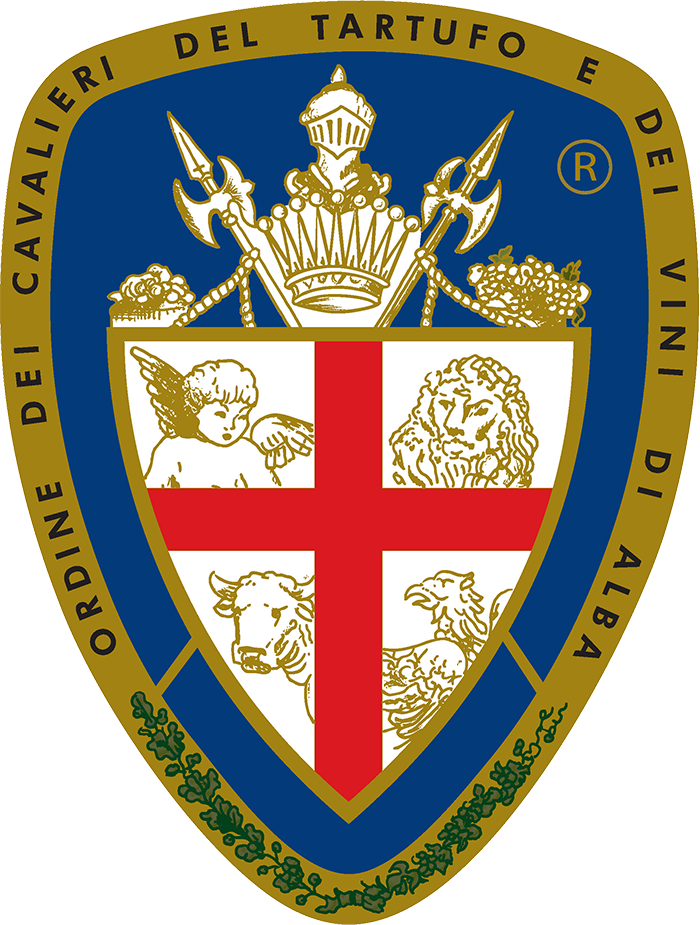At few minutes from Canelli, a town where at the end of XIX century the first Italian sparkling wine (“Spumante”) was born. Its hills are rich in history and culture. It is the throbbing heart of the classical area of the Moscato d’Asti and of the Asti Spumante DOCG, a territory which has been declared Common Heritage of Mankind by the UNESCO.
As many family-run farms of Langa, it is difficult dating back to its foundation. Often, you lose yourself in memories and in the events of generations that came before us. We can establish the beginning of our path after the First World War. More precisely in 1946, when my grandparents, Anna Colla and Armando Soria, got married and purchased a used winepress and had the first two concrete tanks built, together with the unfailing “Dutch bag filter”, with the intention to start producing the Moscato Bianco. They already guessed how much important was to be able to transform one’s own grapes.
The Independent Winemaker cultivates his vineyards, vinifies his grapes, bottles his wine and personally takes care of its sale, under his own responsibility, with his name and label. Engaged daily in a process that follows the entire production chain, the winemakers constantly work to safeguard, protect and promote the territory they belong to.
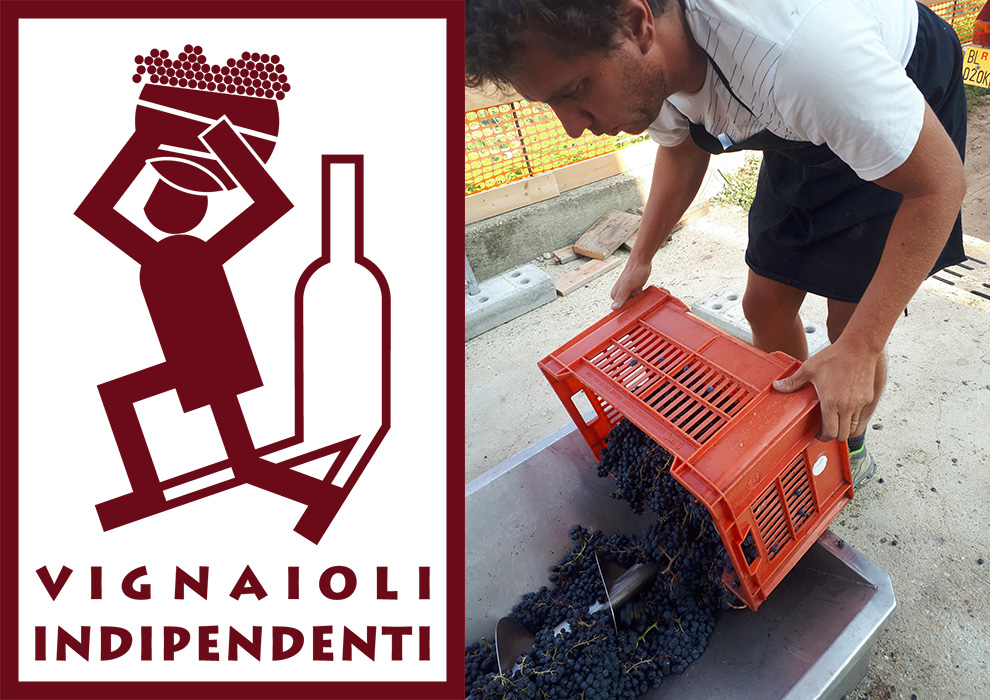
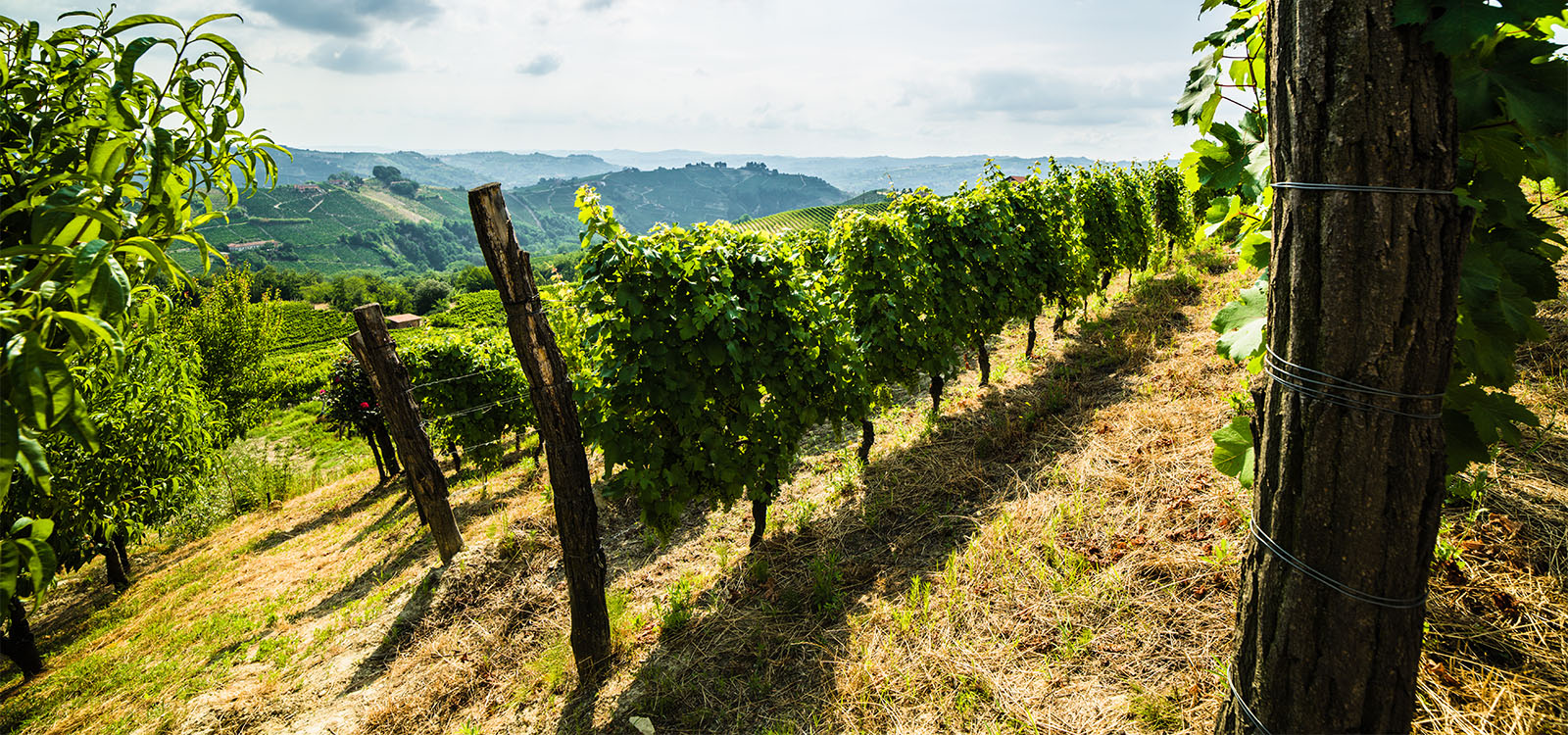
Today, together with my parents Piero and Teresa, I lead a company of twelve hectares of vineyards, where Moscato and sustainability are protagonists. Vineyards facing south, which require a lot of manual work, where slopes of more than 40% are reached. They are the "sori del Moscato". We believe in this heroic viticulture, in the distinction of the different crus and in the evolution of bottled wines. From these vineyards we produce the Moscato d'Asti Vigna Moncucco, the Moscato d'Asti late harvest Vigna Marini and the Piemonte D.O.C. UNUSUAL Dry Muscat. Some specialties that we have available in a limited version are Moscato d'Asti D.O.C.G. Vigna Moncucco Collection 60 months with an aging of over 5 years in the bottle, and the INSOLITO Collezione, a dry Moscato in purity aged for one year in barriques. We also produce a Grappa di Moscato Aged in barriques and we have recently revived the traditional product of our area: the Turin Vermouth, which we produce using our dry Moscato, ideal for make aperitif cocktails.
We don't only vinify Moscato, but also Rosè di Marin, Piemonte D.O.C. Brachetto Secco, and we produce two suitable red wines.
We produce two red wines suitable for daily consumption, the Langhe D.O.C. Dolcetto and Barbera d'Alba, both aged only in steel and finally one red aged in wood: the Barbera d'Alba Superiore.
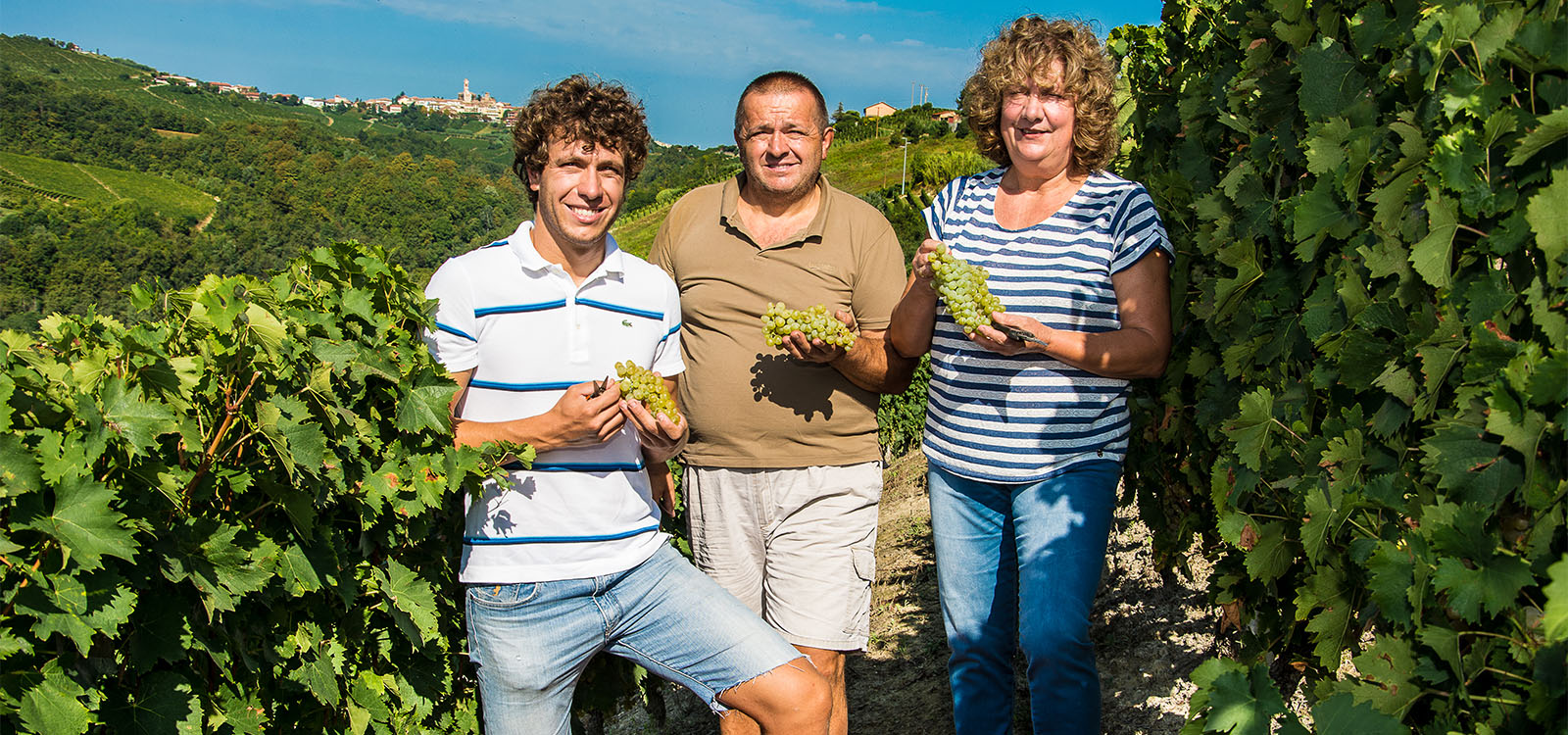
The quality of a wine consists in the excellence of the grape harvested and so in the vineyard that has produced it. Highly sloping vineyards, where mechanization is limited or even impracticable in some cases, imply a quality viticulture having a strong historical value. When the Moscato – the “good” one – was already Spumante, in order to produce it, only the grapes coming from vineyards castled on the steepest and better exposed sides of our hills were used. These vineyards offer their best in the most difficult vintages, grapes reach a good quality level even in the less favourable vintages from a climatic point of view, rows require few phytosanitary interventions, given that heat and dryness are daily conditions that certainly do not favour fungal diseases. We are talking about an old-style viticulture, the one of our grandparents, which in these areas is at risk of extinction to the advantage of replanting on less inaccessible territories where costs are more limited, mechanization is almost complete and greater productions per hectare are obtained. A viticulture that respects these hills and its history.

So called in dialect, I Sorì are the sides with steep slopes and optimal exposures, historically cultivated with vines to receive great quality. They are an important value for viticulture in our area, and they have contributed to the recognition by the UNESCO Committee, which has inscribed the site "The viticultural landscapes of Piedmont: Langhe-Roero and Monferrato" on the World Heritage List.
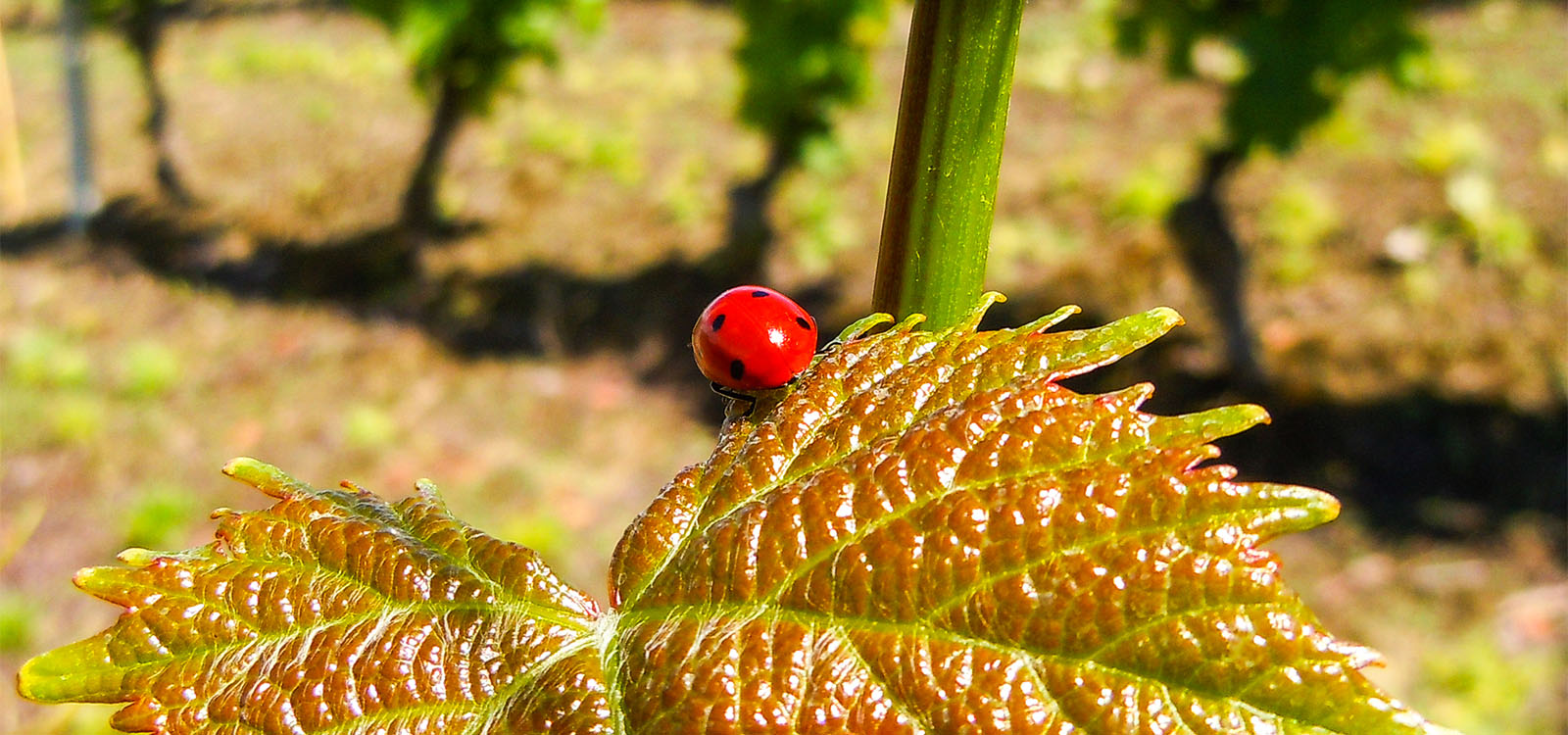
All our vineyards, and so the grapes we produce, are SNQPI certified.
We try to optimise as best as we can the management of the vineyard in order to carry on a path of sustainability on several fronts, by respecting people and the environment.
The National Quality System of integrated production is a system of voluntary integrated protection achieved through specific technical standards for each crop and binding phytosanitary indications (production guidelines), including agronomic and phytosanitary practices and limitations to the choice of phytosanitary products and to the number of treatments.
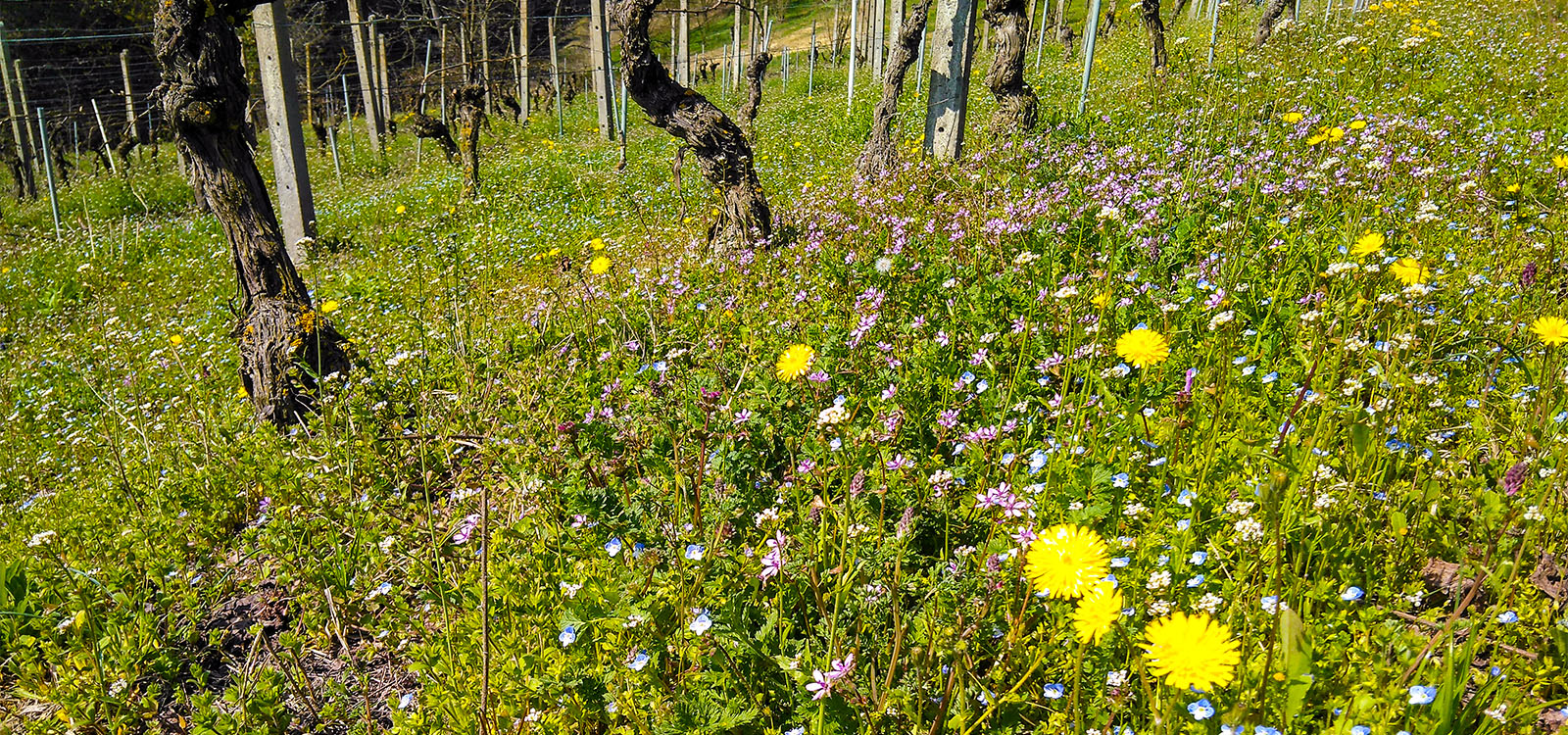
On February 22nd 1967 a Food and Wine Brotherhood named the Order of Knights of the Truffle and Wines of Alba was formed in a small trattoria in the village of Grinzane Cavour. Galvanized and led by Luciano Degiacomi, the association’s twenty-one Founder members – who used to love underlining their “disinterest and independence” – drew up Articles of Association setting out the Order’s main purposes as preserving, safeguarding or reintroducing local customs, practices and traditions, raising the profile of local food and wine, and actively promoting the typical wines and food of Alba both in Italy and abroad.
The twenty-one founder Knights were all “Albesi”, or in any case from the surrounding hills of the Langhe. Today the Order has more than 2000 members all over the world, with Delegations in Switzerland, Hong Kong, New York, Napa Valley, Taiwan, Austria and Dubai. Led by Masters, they organize Chapters dedicated to our food and wine traditions, outstanding products and highly-regarded wines.
